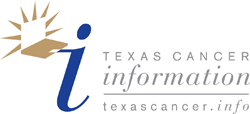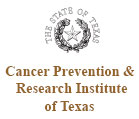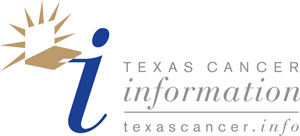Genetic Testing for Breast and Ovarian Cancer – Get the Facts
Some cancers seem to run in families, with several family members getting the disease, often across generations. Meanwhile, other families remain untouched by cancer. Sorting out the facts can get confusing.
About 5 to 10 Percent of Cancers Are Inherited
Changes, called mutations, in our genes sometimes cause hereditary cancer – cancer that can run in families. Individuals with gene changes may be more likely to develop either breast and/or ovarian cancers.
Genetic testing looks for changes in genes that may increase cancer risk. For breast and ovarian cancers, genetic testing for the BRCA1 and BRCA2 genes can tell if you have the gene changes that increase your risk for these diseases.
If you’re thinking about genetic testing, remember that only about 5 to 10 percent of cancers are hereditary.
Not Everyone Needs Genetic Testing
Usually only people with a strong family history of cancer should be tested. Most cancer is sporadic, meaning it occurs by chance. People with sporadic cancer don’t inherit any gene changes that increase their cancer risk.
It’s important to know your family’s history of disease, including which types of cancer family members have had. Talk to your doctor or a genetic counselor if:
- You had breast cancer before age 50
- You had breast and ovarian cancer
- Two or more close relatives had breast and/or ovarian cancer (mother, sister, daughter)
- Any men in your family had breast cancer
- You are of Ashkenazi Jewish descent
- A family member has been tested and has a change in a BRCA gene
If you’re tested and you don’t have BRCA gene changes, you still may get cancer. Other things can cause cancer besides heredity, and genetic testing only checks for hereditary cancers by revealing changes in the BRCA genes.
Information Is the Key
Health care providers specializing in hereditary cancers can discuss appropriate testing, screening and prevention recommendations for families with hereditary cancer.
The nation’s only producer of genetic tests for breast and ovarian cancer recently launched a direct-to-consumer marketing campaign in Texas, and health care providers are helping educate individuals about who may benefit from this testing.
Texas Cancer Information (www.texascancer.info/info/genetics.html) can tell you about:
- Where to find information about cancer and genetics
- Where to find a genetic counselor
- Links to reliable Web sites
Resources
Back to the Top
Cancer Prevention & Research Institute of Texas Replaces Texas Cancer Council
New State Agency Launches Web Site
Last fall’s passage of Proposition 15 ushered in new infrastructure to manage the state’s cancer initiatives ― the
Cancer Prevention & Research Institute of Texas (CPRIT).
The new agency, which replaces the former Texas Cancer Council (TCC), is authorized to issue $3 billion in general obligation bonds over 10 years to fund cancer and cancer prevention research, as well as build new research labs.
CPRIT will continue implementing the
Texas Cancer Plan, the statewide blueprint for cancer prevention and control that the TCC has overseen.
CPRIT launched its Web site in August,
www.cprit.state.tx.us.
Texas Cancer Information (TCI) maintained the TCC Web site for more than 10 years, and TCI and CPRIT staff worked together to develop the new
CPRIT site.
What’s Available on CPRIT Web Site
Currently, you can find these components on the Web site:
Back to the Top
American Cancer Society Prepares New Facts & Figures
Each year, the
American Cancer Society (ACS) produces a cancer tool used nationwide by cancer researchers, healthcare professionals and individuals –
the
ACS Facts & Figures publication.
A sister publication to this national version is the
Texas Cancer Facts & Figures, last published in 2004 and currently in production for 2008. Following publication of the print version, look for a Web-based version on the Texas Cancer Information (TCI)
Statistics page.
The state version,
Texas Cancer Facts & Figures, began in 2004 when ACS Texas Division worked with several state entities to compile information from their respective organizations, streamlining this information into one publication.
Until then, several agencies had produced their own publications. Organizations involved included the former
Texas Cancer Council (TCC),
Texas Department of State Health Services,
Texas Cancer Registry,
The University of Texas M. D. Anderson Cancer Center and
Texas Cancer Data Center ― now
TCI.
This year, these groups and two others ―
Cancer Therapy and Research Center at
UT Health Science Center (UTHSC) at San Antonio
and
Dan L. Duncan Cancer Center at
Baylor College of Medicine ― collaborated to update Cancer Facts & Figures. As in the 2004 edition,
TCI provided several maps and statistics about Texas cancer resources.
Back to the Top
Get to Know Us ― Carolyn Bernard, CPHIMS
Long before ubiquitous iPod earphones trailed from every teenage ear, Carolyn Bernard, CPHIMS, developed the first version of
Texas Cancer Data Center (TCDC) as a dial-up bulletin board system with
two databases, one on
hospitals and one on
physicians.
If you now view dial-up bulletin boards like stone tablets from a bygone millennium, you’ll appreciate Carolyn’s challenges of integrating new technologies on an ongoing basis to accommodate today’s digitally-savvy, plugged-in society.
In her role as Systems Analyst III, Carolyn holds responsibility for designing, developing, maintaining and expanding
Texas Cancer Information (TCI) system capabilities, as well as all TCI-supported Web sites.
You know the
TCI Web site, use the resources there and have come to rely on its cancer information about Texas to help you do your job or find the resources you need.
The face behind the scenes, Carolyn has spearheaded maintenance of all aspects of the database system – then Web site – since 1986. Her qualifications include earning a Rice University degree with a double major in computer science and mathematical
sciences. Additionally, she earned the CPHIMS designation that stands for Certified Professional in Healthcare Information and Management Systems.
For the past two decades, Carolyn has helped expand TCI – formerly TCDC – content, capabilities and reach throughout the Web. Currently 43 online databases populate TCI, and this number is growing.
Carolyn serves as Webmaster for
TCI,
Cancer Prevention and Research Institute of Texas (CPRIT),
Texans Conquer Cancer Specialty License Plate and
Texas Cancer Control Toolkit sites.
Additionally, she develops cancer
statistics databases and prepares special reports on cancer statistics and resources, such as
Cancer Profiles and maps for
Texas Cancer Facts & Figures and the CPRIT strategic plan.
When not at work, Carolyn enjoys spending time with husband Karl and 7th-grade son Justin.
Back to the Top
What’s New
Back to the Top
Monthly Focus Highlights Cancer Awareness
Tune in to the
Monthly Focus section on the Texas Cancer Information home page for updated information that aligns with national cancer awareness months.
Look for genetics, inflammatory breast cancer and tobacco cessation/lung cancer during the fall.
In
Monthly Focus, you’ll find links specific to each topic featured for that month. Past topics include cancer control and minority cancer awareness, prostate cancer awareness, breast cancer awareness and more.
In the coming months, look for these topics: skin cancer, physical activity, nutrition and survivorship.
Back to the Top
Conference Calendar
|
Date |
Conference |
Location |
Sept. 12
|
Breast Cancer Review
|
Lubbock
|
Sept. 13
|
10th Annual West Texas Oncology Symposium
|
Lubbock
|
Sept. 25
|
Texas Nurse Practitioners Conference
|
Austin
|
Oct. 3
|
Amarillo Area Cancer Symposium
|
Amarillo
|
Oct. 30
|
Frontiers in Pain Management
|
Austin
|
Dec. 5
|
A Common Thread 2008 - Palliative and End-of-Life Care
|
Dallas
|
|
Date |
Conference |
Location |
Oct 10 - 11
|
TSOPHE Fall Conference: From Evidence to Practice
|
Houston
|
|
Date |
Conference |
Location |
Sept. 10 - 12
|
36th Annual Conference
|
San Antonio
|
|
Date |
Conference |
Location |
Sept. 21 - 23
|
Health Disparities Conference
|
Houston
|
|
Date |
Conference |
Location |
Nov. 6 - 8
|
3rd joint conference with NASW/TX and SSWLHC-TX
|
Galveston
|





Back to the Top
Previous editions of TexasCancer.informer:





